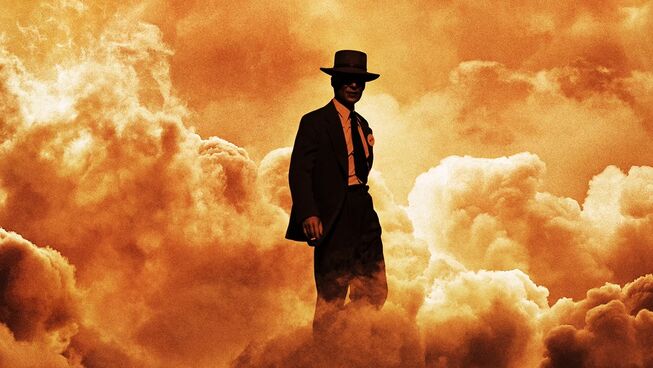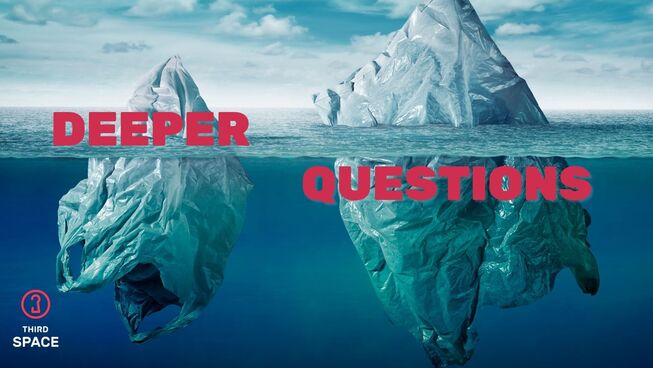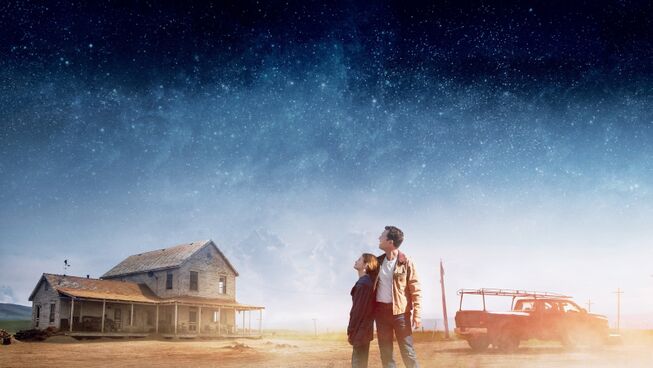Oppenheimer

⭐️ ⭐️ ⭐️ ⭐️ ⭐️
Since 1998, Christopher Nolan has achieved worldwide prestige as one of the great modern auteurs. His 11 feature films have been nominated for a combined 36 Academy Awards, collected $4.94 billion at the box office, and 7 of his 11 films are in the IMDB top 250. He is one of the few directors whose name is a brand in itself. Audiences will turn out for the latest Marvel, Star Wars, or Nolan films; his latest is potentially his best. An epic, immense, cacophonous biopic about J. Robert Oppenheimer, the father of the atomic bomb.
Based on the 2005 biography American Prometheus by Kai Bird and Martin J. Sherwin about Oppenheimer, the film follows the theoretical physicist who was pivotal in developing the first nuclear weapons as part of the Manhattan Project, thereby ushering in the Atomic Age. Spanning decades, and in typical Nolan fashion jumping between these time periods, we witness Oppenheimer’s rise to the head of the Manhattan Project at Los Alamos, the development and testing of the Atomic Bomb, the political battles around the use of atomic weapons and the threats to national security, and Oppenheimer’s own personal moral turmoil around his creation.
Cillian Murphy, a six-time collaborator with Nolan, perfectly recaptures Oppenheimer’s thousand-yard stare, which the film steadily imprints onto the audience’s soul. He conveys so much with his eyes and his steady tone. Surrounding Murphy, Nolan has assembled an immense cast delivering fantastic work. With Emily Blunt, Florence Pugh, Matt Damon, Josh Hartnett, David Krumholtz, Benny Safdie, Kenneth Branagh, Alden Ehrenreich, Rami Malek, Casey Affleck, David Dastmalchian, Jason Clarke just to name a few. Add an Oscar-worthy supporting performance from Robert Downey Jr., whose portrayal of Lewis Strauss, the man who stripped Oppenheimer of his security clearance during the McCarthy-era anti-communist purge, being calculating and vindictive and granting us an outsider lens to critique Oppenheimer.
Nolan has also assembled an impressive team behind the camera, reuniting with many of his collaborators from Tenet. Composer Ludwig Göransson delivers a constantly blasting orchestral score, that noticeably pauses only briefly during the dropping of the atomic bomb. That sequence may have some of the best sound editing and mixing ever experienced in film. Cinematographer Hoyte van Hoytema captures incredible visuals, perfect for IMAX. In collaboration with visual effects supervisor Andrew Jackson, they capture some of the most impressive in-camera visual effects ever put to screen. The film has barely any CGI at all. Every explosion is real and palpable. Editor Jennifer Lame does well to structure a three-hour behemoth of cinema that never feels bloated or slow-paced.
Upon the credits starting, you may feel deservedly exhausted, but you’ll have never been bored or found checking your phone. It is entirely engrossing filmmaking with a stern warning for the world about the dangers of unchecked power, and scientific advancements being used in the wrong hands to make weapons of mass destruction. Oppenheimer is an anti-war film that never feels preachy. A biopic that never feels conventional. A monumental visual achievement that is an intricate, magnificent, breathtaking behemoth.
Well done, Mr. Nolan, well done.
Reel Dialogue: What happens when we play God?
Like the Greek myth Prometheus who gave fire to mankind and was chained to a rock and tormented for all eternity, Oppenheimer battles deep inner turmoil, having given the world a weapon that brings mass destruction. The film raises many questions about the morality of using the atomic bomb and the dangers of playing God. As Robert is steadily more and more haunted by the consequences of his hubris, the toll it takes on him is immense.
The Bible teaches about the dangers of human hubris many times. The Fall in the Garden of Eden resulted from Adam and Eve trying to make themselves equal to God. The Tower of Babel is another story demonstrating mankind’s inability to make themselves gods. Every time mankind tries, it fails since there is only one God. And He is the one with the ultimate power to judge and destroy. And yet, His heart's inclination is not destruction, but mercy and love. This is why He sent His Son, Jesus, into the world to save it, not destroy it. Have you ever stopped trying to be god in your life and surrendered to let the real God in?
“So that all the peoples of the earth may know that the Lord is God and that there is no other.” - 1 Kings 8:60
If you want to discuss God, contact us at Third Space. We would love to chat about this and more.

Reel Marriage
Lights, Camera... Movies and Marriage!
Marriage is one of life’s greatest blessings, yet it faces countless challenges in today’s world. How can we strengthen our commitment and help others see its value? The Bible offers wisdom, but what if movies could serve as a bridge to deeper conversations about love, faith, and commitment?
Reel Marriage explores how film and Scripture can illuminate the beauty of marriage, providing fresh insights into God’s design for love and relationships. From classic romances to modern dramas, movies capture couples' struggles and triumphs, mirroring biblical truths in powerful ways.
Faith and film unite. Are you ready to see marriage in a whole new light?
If you order your copy today you will also receive a complementary handbook that is only available with the purchase of the book (Print or ebook)











